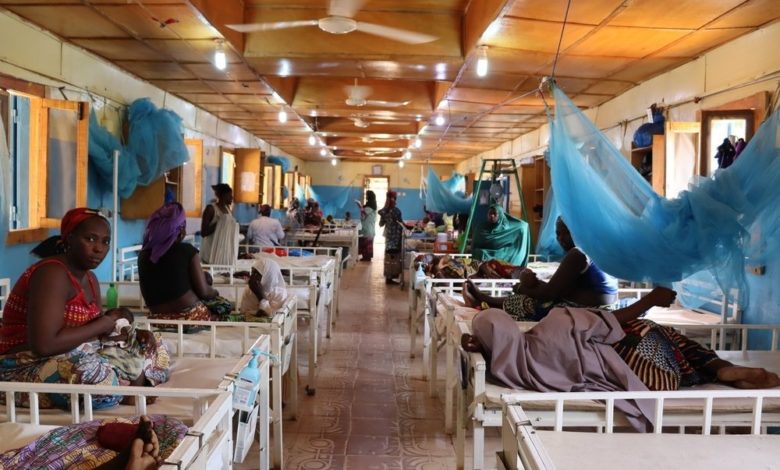MSF Begins New Program To Treat Malnourished Children In Northwest Nigeria
As the insurgency in northern Nigeria increases, MSF is working with the Nigerian Ministry of Health to run a 62-bed inpatient treatment centre (ITFC) in Katsina City to reduce the cases of malnutrition in children.

Médecins Sans frontières/Doctors Without Borders (MSF), an international NGO, has initiated a new program to treat malnourished children in Katsina state, Northwest Nigeria, as conflict and insecurity intensify in the region.
Dr Guyguy Manangama, MSF’s Deputy Emergency Cell Manager, said this in a press statement on Friday, Nov. 19.
The press statement also said that MSF admitted 1,784 severely malnourished children to the Ambulatory Therapeutic Treatment Centres (ATFCs) and 324 to the Inpatient Therapeutic Treatment Centre (ITFC) since the beginning of its activities in Katsina on Monday, Sept. 20 to the last week of October.
Also, since their activities started in Jibia in August 2021, MSF admitted 4,513 malnourished children, 78 per cent of whom were suffering from severe acute malnutrition.
However, despite the increasing insurgency, MSF revealed they are working in collaboration with the Nigerian Ministry of Health to run a 62-bed ITFC in Katsina City, as well as five ATFCs: one in Katsina City and the other four in Jibia Local Government Area, close to the border with Niger.
Dr Guyguy Manangama said MSF carried out a nutritional survey in Katsina that revealed alarmingly high levels of malnutrition.
“According to this survey, the prevalence of global acute malnutrition (GAM) was 26.1 per cent, and severe acute malnutrition was 7.4 per cent, given that these centres were only working two days a week due to security concerns, these numbers are strikingly high,” Guyguy said.
“We also found that there were few options for parents in the area to access malnutrition care, the effect of which we see across the border in Niger: around 60 per cent of the children admitted to our nutrition program in Madarounfa district are from Nigeria.”
Apart from Katsina and Jibia, the organisation is also running nutritional activities in Zamfara State, with three ITFCs in Anka, Shinkafi, and Zurmi Local Government Areas, and 12 ATFCs spread throughout the state.
Dr Manangama also said the conflict in the Northwest is witnessing a wave of violence, with kidnappings for ransom common, and frequent confrontations between various armed groups and Nigerian forces.
“The conflict is contributing to the high levels of malnutrition and making responses to them more difficult. Agricultural activities are impacted, travel is more difficult, and the cost of food therefore increases. The population is also facing an economic crisis driven by several factors including the consequences of the Covid-19 pandemic.”
He also said providing healthcare services in these states are extremely dangerous as medical staff can be targets for kidnapping, and they fear attacks on medical centres, “The insecurity means that we cannot travel to all the areas where we would like to offer care.”
“With malnutrition season usually coming to an end around October, Dr Manangama said, MSF are still admitting patients into ITFC in Katsina City, “this shows that there are still malnourished children needing treatment and that our centre is one of the very few options for treatment available in the area.”
“A report by the United Nations Children’s Fund (UNICEF) said that the States in Northern Nigeria are the most affected by the two forms of malnutrition – stunting and wasting and also, Nigeria has recorded the second highest burden of stunted children in the world, with a national prevalence rate of 32 percent of children under five.
“An estimated 2 million children in Nigeria suffer from severe acute malnutrition (SAM), but only two out of every 10 children affected is currently reached with treatment. Seven percent of women of childbearing age also suffer from acute malnutrition,” the report said.
Support Our Journalism
There are millions of ordinary people affected by conflict in Africa whose stories are missing in the mainstream media. HumAngle is determined to tell those challenging and under-reported stories, hoping that the people impacted by these conflicts will find the safety and security they deserve.
To ensure that we continue to provide public service coverage, we have a small favour to ask you. We want you to be part of our journalistic endeavour by contributing a token to us.
Your donation will further promote a robust, free, and independent media.
Donate HereStay Closer To The Stories That Matter




